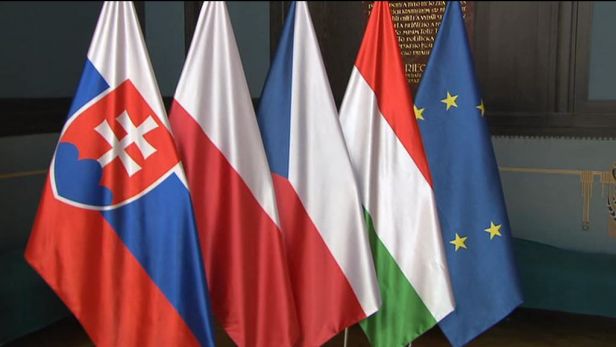European Union – The European Commission has initiated on Monday, June 12, an infringement procedures against Hungary, Poland and Czechia for those countries’ failing to implement the community’s earlier decision on refugee quotas.
EU migration Commissioner Dimitris Avramopoulos told on Tuesday to the press that the Commission was sending an official note to Hungary, Poland and Czechia, signaling the beginning of proceedings related to their refusal of the quota scheme, which aims to dispatch asylum seekers massively arrived in 2015 in the EU among the EU members. The scheme was accepted by a majority of EU Interior ministers back in September 2015, but opposed by Hungary and others.
Austria, which until now has not take part in the relocation scheme, is not on the list for the sanctions, since its government finally agreed to take measures in order to start participating to this relocation program.
Czechia, Hungary and Poland do not accept “blackmail”
Both Polish and Hungarian foreign ministers on Monday refused to link the refugees relocation program with the EU funds.
At a joint press conference following meeting with his Hungarian counterpart Peter Szijjártó, Polish Foreign Minister Witold Waszczykowski said here that “We do not accept a blackmail of financial punishment to those who refuse to take in refugees. These issues cannot be linked.”
Waszczykowski emphasized that refugees relocation program cannot be linked with EU funds as EU funding was regulated by treaties, adding Poland did not consent to being blackmailed by fines or losing EU funds in the refugee issue.
The Hungarian foreign minister also said the European Commission’s allegations were of a political, not legal character” and also gave no consent to blackmail or punishing for not accepting refugees.
Both the foreign ministers agreed that the EC “goes far beyond its competences”.
In Czechia, Interior minister Chovanec told already in April, that Czechia would rather face sanctions than to be forced to take migrants. He explained that security concerns were the main reason for this decision.
In Poland, Beata Szydło called in front of the parliament to hold on. “We’ll accept no blackmailing from the European Union. We will not take part in the madness of the Brussels’ elites,” she told after the Manchester attack.
Viktor Orbán linked also the responsibility of the EU elites to terrorism, and recently even explained Hungary’s intention to reinforce even more the border fence.
What next?
Dimitris Avramopoulos voiced hope that governments of the three countries would review their position and in the end “common sense and a European spirit” will prevail. Avramopoulos said that the community would not leave members on the outskirts of the EU with no assistance, but insisted that each country must participate in the resettlement mechanism. Participation is not a matter of choice but an obligation based on a community decision; EU members must be loyal not only to migrants fleeing from war but to fellow members, too, he said.
For Lajos Kósa, ruling Fidesz group leader, the quota decision “cannot be implemented” due to “a huge number of open issues”. He added that “no European Union member has implemented it”.
Kósa also said that infringement procedures are “an accepted institution” with “several hundred” launched each year, and insisted that the number of such procedures against Hungary did not exceed the European average.
“The procedure will be the same as another time: there will be a debate, going through all stages of the procedure, and in the end – if the case reaches that stage – the European Court will decide,” Kósa said. “If the EU enforced the rules, order would be restored and there would be no migration crisis,” he added.
Once the sanction process initiated, the next step is for the Court of Justice of the European Union to take a decision in this conflict, while it is already working on the challenge of the quotas by Hungary and Slovakia.



